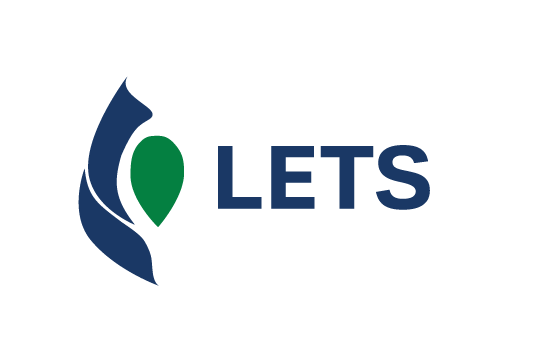*article originally posted on the Turismo Spot Blog
A theme widely discussed in the business and academic world, as well as by government and third sector organizations, cooperation in tourism is an increasingly relevant condition, in a world of increasing scarcity of resources (natural, financial, etc.). Especially in crisis scenarios, forming alliances with other organizations is essential to the competitiveness of tourist destinations. Cooperation translates into joint work between different organizations aiming at common and/or complementary benefits. These partnerships are usually more formal, when they involve large companies, and informal, when they permeate the universe of micro and small businesses (the most recurrent case in the tourism sector).
In practical terms, cooperation can materialize in situations of greater complexity, such as the transfer of technologies and the replication of good business initiatives, or in simple actions, such as the indication of an inn for its guest to carry out a City Tour with a partner agency. Or even, when a hotel passes on its customer to another partner hotel for being in Overbooking . It is important to note that, although unintentionally, the tourism sector requires cooperation actions, given the logic of complementarity of its production chain. In other words, in a destination it is necessary to have someone who offers transportation, accommodation, food, who guides visitors through the attractions during their stay, etc.
In several Brazilian states, entrepreneurs come together to carry out press trips in their destinations. Thus, they organize the logistics to receive journalists and other opinion makers, from their travel and stay, to the experience of visiting local attractions. In fact, this has already been an initiative shared between different states, as is the case of the articulation that involved companies belonging to the Route of Emotions (MA, PI and CE) in the Brazilian Northeast. Often, the investment to pay for the provision of services by a consultant is made possible by the fact that entrepreneurs share the costs involved. Something that, in isolation, the enterprises could hardly accomplish. It is already known that many businesses are able to participate in tourism fairs such as ABAV, BTM and WTM, precisely because they share the rental costs of the Stands and/or have the support of their local governments. At fairs, entrepreneurs collectively fight to attract new partners who market their products and services. Locally, they develop their individual strategies to attract new customers and retain old ones.
In one of the most competitive Brazilian destinations, Vila de Jericoacoara (CE), restaurant owners have come together to share freight costs, as they buy most of their goods in the capital of Ceará. Once, when faced with problems related to public garbage collection, a local business association divided the costs of transporting waste among its members, thus avoiding greater negative effects such as the proliferation of diseases and the erosion of the image of the destination. As can be seen, there are many examples of business articulation that generates positive returns to those involved, such as cost reduction, obtaining privileged information, greater visibility of products and services, an increase in the number of customers, among others. All of this favors gains to the competitiveness of businesses and, consequently, of destinations.
In many realities, a well-established cooperation, which favors better governance of the destination as a whole, requires a more systematized articulation and knowledge on the part of the business community about the relevance of working with other businesses in partnership, even if they are direct competitors. A good example of this? The mechanism of the voucher digital in Bonito (MS) which, after years dedicated to increasing its operationalization, managed to reach a format that favors fundamental elements for the management of local tourism: ensuring tax collection, distributing socioeconomic benefits among the agents of the production chain, ensuring quality in the visitation experience, in addition to ecosystem protection. Not by chance, Bonito boasts national and international awards, as an ecotourism destination, and is a reference for other tourist locations that aim to improve their governance, such as the Lençóis Maranhenses National Park (MA) and the Jalapão State Park (TO).
But what do a good part of these business cooperation initiatives have in common? The answer is the direct involvement of so-called support institutions (IDS). These are understood as organizations that operate in destinations, provide local businesses with specialized services, knowledge outside the territory and opportunities that promote business competitiveness. In destinations, SDIs translate into business associations, government organizations, universities and research centers, as well as public or private funding sources.
Although not always mentioned (or recognized) by the tourist business, and commonly imperceptible to the eyes of visitors, IDS have been proving to be important agents in the construction of business partnerships in destinations. This "invisible hand of tourism cooperation" is established, as the IDS contribute to raising awareness about the importance of cooperating, to bringing together entrepreneurs – who often do not even know each other – so that they start dialogues in favor of effective cooperation, as well as in the operationalization of these partnerships. Many ideas for alliances come from the SDIs and are conceived in the meetings promoted by them. This is what institutions such as SEBRAE usually do in business roundtables and what universities do when organizing events that bring together the various actors in the tourism sector. The IDS also promote meetings with the business community to share good practices on this topic and manage local conflicts, fundamental issues for the establishment of alliances between those involved.
Another important contribution of IDS is related to technical guidance, through courses and training, which help in the implementation of collaborative actions between companies. In Brazil, the performance of IDS is recognized as municipal and state tourism secretariats, government agencies such as the Ministry of Tourism, associations representing the sector such as ABAV, ABIH and BRAZTOA, as well as organizations such as SEBRAE and the Convention & Visitors Bureau .
In the context of COVID-19, in cities such as Alto Paraíso (GO), Florianópolis (SC) and São Luís (MA), government support – in different spheres – was essential for many businesses to be able to honor their financial commitments to employees and suppliers. In addition, the joint action of business associations – such as ABAV and ABIH – to pressure the federal government to build measures that would support the tourism sector resulted in MP No. 948/2020, which exempted companies from reimbursing consumers, for a given period, in cases of cancellations of services, reservations, and events. This was another initiative that reproduces the central idea of cooperation: to act collectively for common benefits. In this case, public support for tourism companies to face the inclement weather arising from the pandemic.
Finally, I share the thoughts of two renowned tourism scholars, Ritchie and Crouch (2003), about the global competitiveness of the travel sector. For them, even before the competition between businesses within a destination, the various actors in the production chain – competitors or not – must pay attention to the dispute between the various destinations for the attention of tourists. Therefore, the collective and cooperative effort to build a distinct tourist offer – which is reflected in the set of visitation experiences provided by the organizations that make up the destination – is key to making the location an "object of desire" by travelers. And these business alliances, which favor the competitiveness of tourist cities, can have IDS as their starting point.


